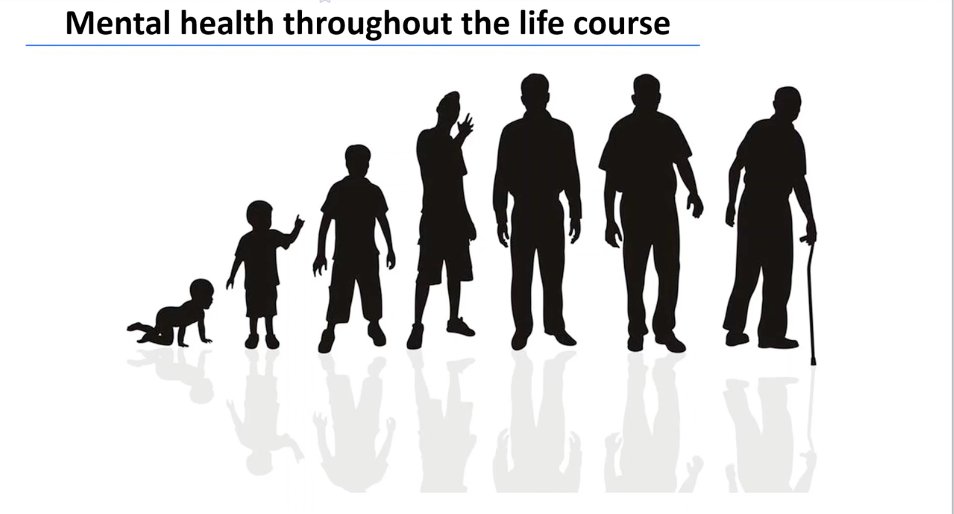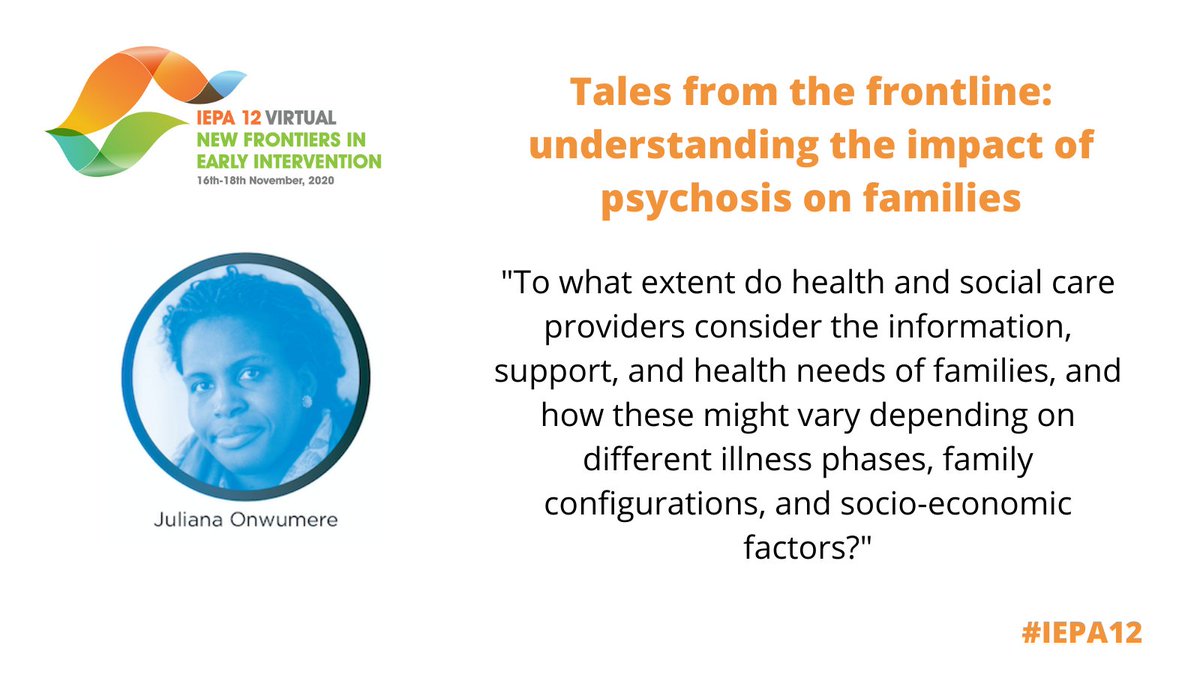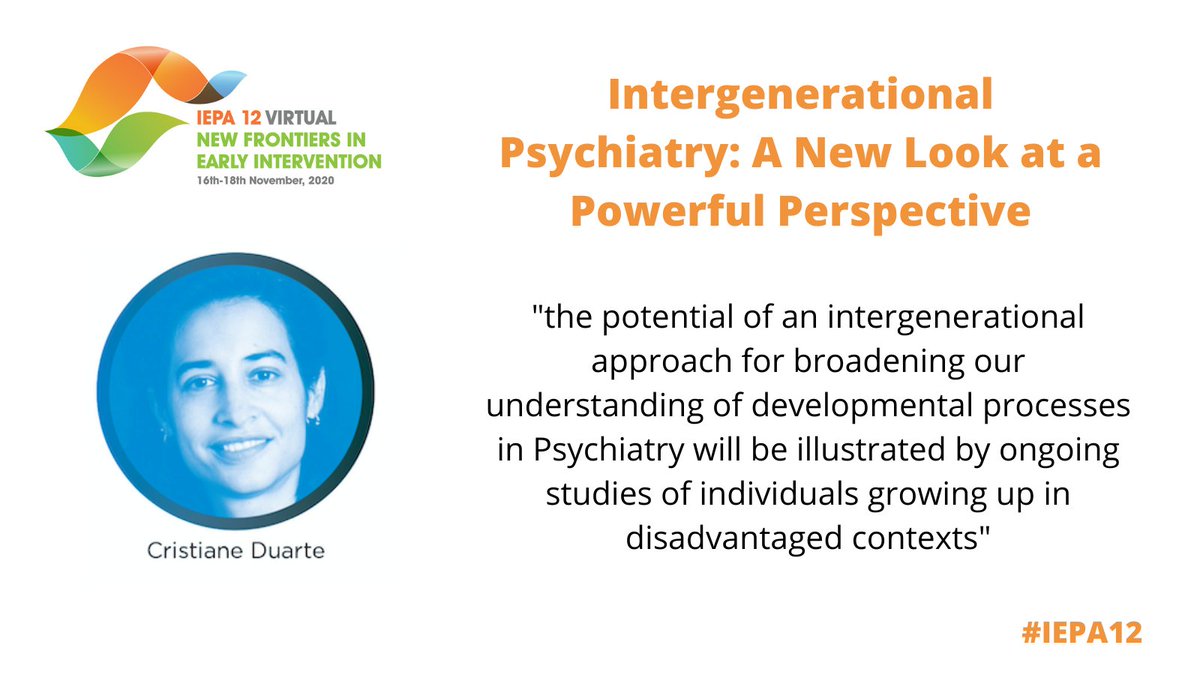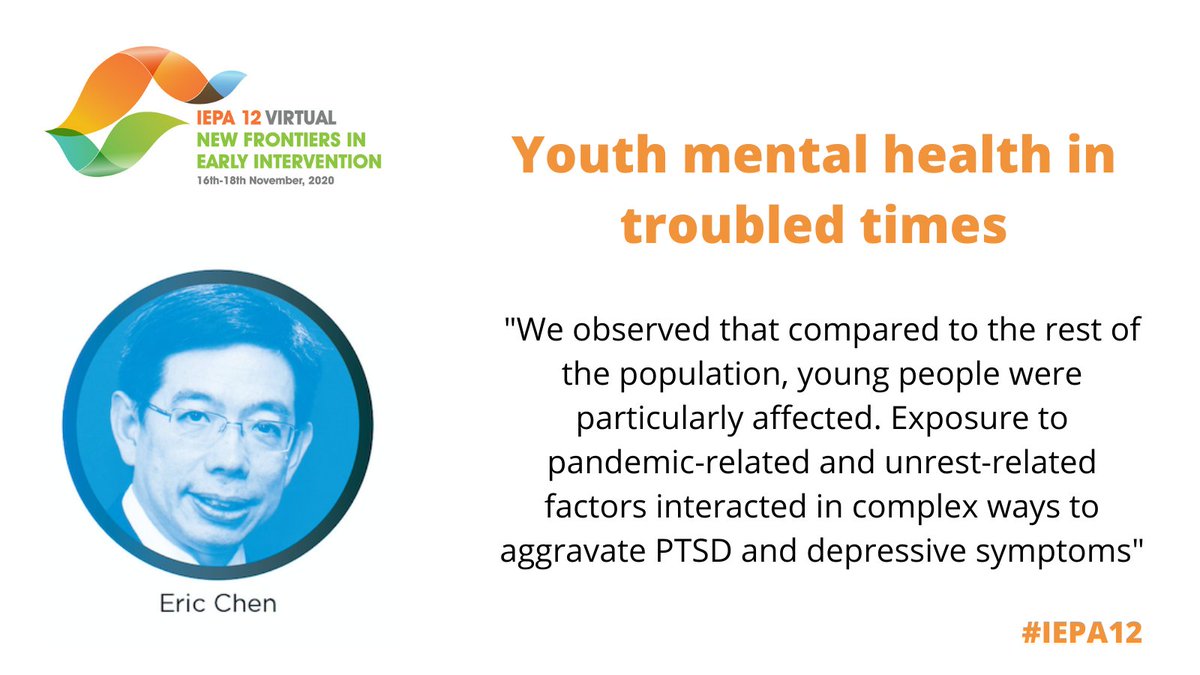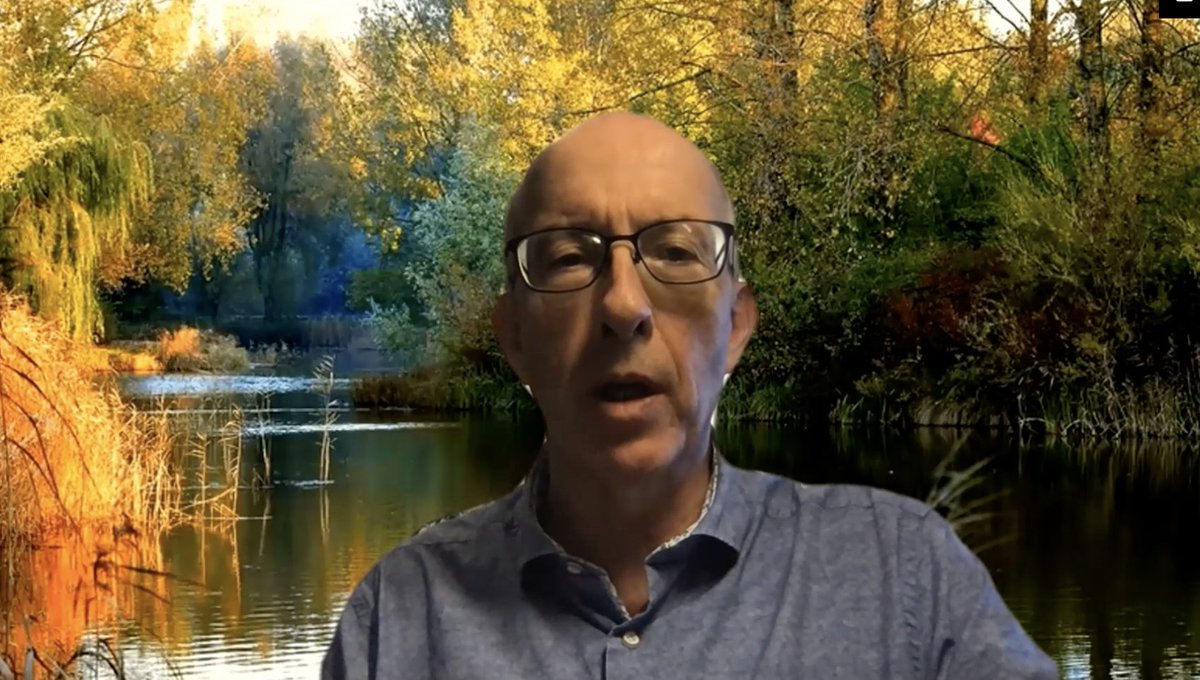
Our next talk at #IEPA12 is by @golam_khandaker from @psychiatry_ucam who will be discussing the immune system as a potential target for treatment and prevention of serious mental illness and comorbid cardiometabolic diseases 

This talk will focus on the potential role of the immune system.
Is inflammation likely to be a causal risk factor for depression, psychoses and comorbid physical illness? #IEPA12
Is inflammation likely to be a causal risk factor for depression, psychoses and comorbid physical illness? #IEPA12

Inflammation: what does it mean and why is it relevant? (when a friend becomes a foe)
-innate immunity (first line of defence) this is the focus on the talk today
-cytokines are similar to neurotransmitters: they enable white blood cells to talk to each other
#IEPA12
-innate immunity (first line of defence) this is the focus on the talk today
-cytokines are similar to neurotransmitters: they enable white blood cells to talk to each other
#IEPA12

Inflammation in psychiatry - this means "a low grade chronic activation of immune response measurable by blood test", which is very different from an acute infection where the magnitude of infection is often 10x or even 100x stronger #IEPA12
“we describe important areas of research regarding innate & adaptive immune response in schizophrenia & related psychotic disorders that, we think, will be of interest to psychiatric clinicians & researchers.” #IEPA12 @golam_khandaker @TheLancetPsych doi.org/10.1016/s2215-… 

Inflammation leads to neurochemical changes that could lead to the behavioural changes we see in psychosis and depression #IEPA12
Activation of innate immune response can lead to depressive symptoms (e.g. 40% of hepatitis patients treated with interferon get depressed) #IEPA12 

Setiawan @JAMAPsych 2015 Neuroinflammation in depression and psychosis #IEPA12 doi.org/10.1001/jamaps…
Acute depression and psychosis are proinflammatory states (Happakoski BBL 2015, Miller 2011 Biological Psych)
Our innate immune response is activated and our body tries to fight off "the infection” (Osimo, Psychol-Med) #IEPA12
Our innate immune response is activated and our body tries to fight off "the infection” (Osimo, Psychol-Med) #IEPA12

Is the association between inflammation and depression likely to be causal?
-reverse causality (perhaps inflammation is a consequence of depression?)
-confounding (perhaps a third factor is at work, i.e. not inflammation or depression)
#IEPA12
-reverse causality (perhaps inflammation is a consequence of depression?)
-confounding (perhaps a third factor is at work, i.e. not inflammation or depression)
#IEPA12
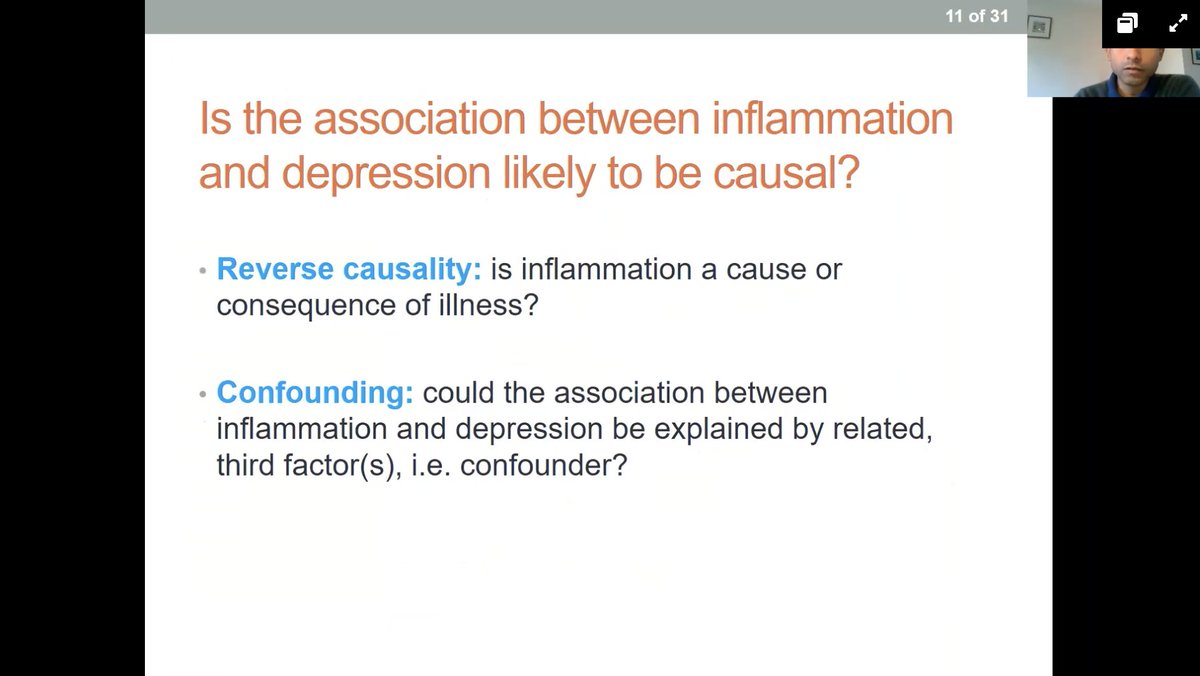
Longitudinal studies (ALSPAC) help us look into reverse causality & confounders (Khandaker @JAMAPsych 2014) Stepwise increases in depression and psychosis following inflammation (age 9+18 children) #IEPA12 jamanetwork.com/journals/jamap…
These findings have been replicated in Finnish and Swedish samples #IEPA12
All of this suggests that reverse causality is an unlikely explanation for the association between inflammation and depression #IEPA12
Mendelian randomisation has helped researchers overcome the problem of potential confounding (using genetic variations as proxies for biomarkers) (Khandaker BBI 2018, Khandaker Molecular Psychiatry 2019) showing inflammation as a shared mechanism for depression/psychosis #IEPA12 
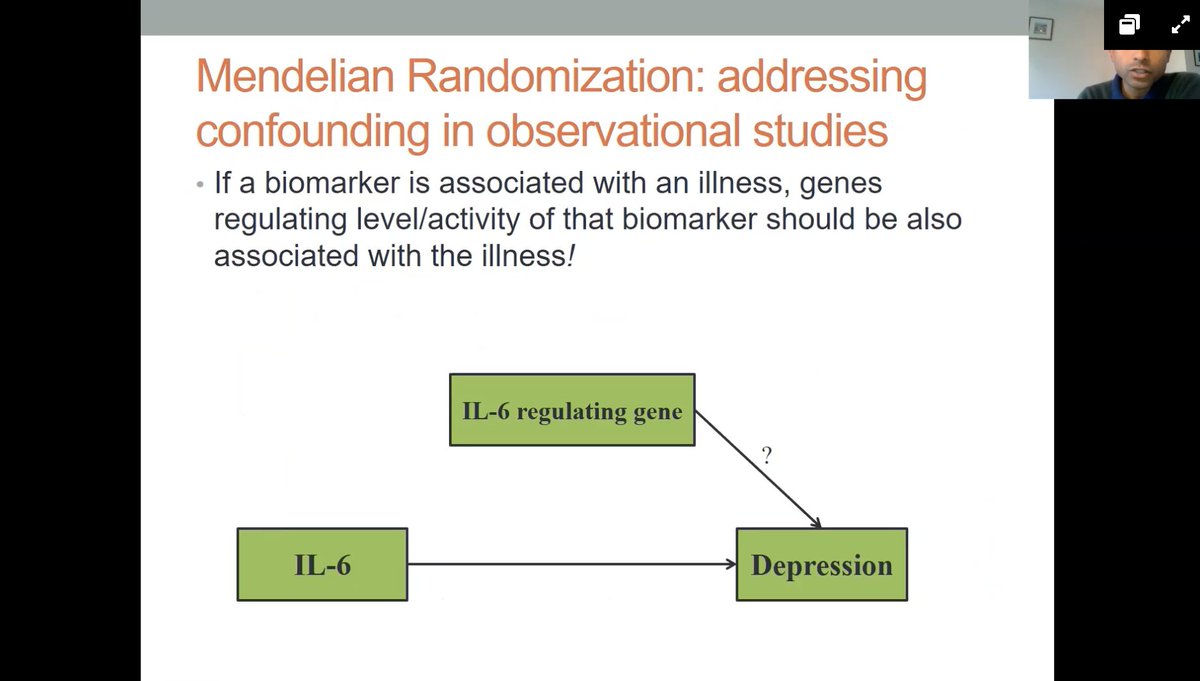
Don't understand what Mendelian randomisation is all about? Check out this great short primer video from the tweeps at @BristolTARG #IEPA12
Inflammation and depression
Overall the evidence is consistent with a potential causal role, says Khandaker
#IEPA12
Overall the evidence is consistent with a potential causal role, says Khandaker
#IEPA12

What are the treatment implications of these findings?
-inflammation matters, it’s clinically relevant
-e.g. Cortisol and Inflammatory Biomarkers Predict Poor Treatment Response in First Episode Psychosis (Mondelli Schizo-Bull 2015) #IEPA12
dx.doi.org/10.1093%2Fschb…
-inflammation matters, it’s clinically relevant
-e.g. Cortisol and Inflammatory Biomarkers Predict Poor Treatment Response in First Episode Psychosis (Mondelli Schizo-Bull 2015) #IEPA12
dx.doi.org/10.1093%2Fschb…
Could anti-inflammatory drugs be helpful in treating depression and psychosis? e.g.
Kohler JAMA-Psych 2014: jamanetwork.com/journals/jamap…
Cho ANZ J Psych 2019: doi.org/10.1177%2F0004…
#IEPA12
Kohler JAMA-Psych 2014: jamanetwork.com/journals/jamap…
Cho ANZ J Psych 2019: doi.org/10.1177%2F0004…
#IEPA12
Anti-cytokine drugs have an antidepressant effect, which cannot be explained by improvement in physical symptoms
“Cytokine modulators may be novel drugs for depression in chronically inflamed subjects.”
Kappelmann Molecular Psych 2018: doi.org/10.1038/mp.201…
#IEPA12
“Cytokine modulators may be novel drugs for depression in chronically inflamed subjects.”
Kappelmann Molecular Psych 2018: doi.org/10.1038/mp.201…
#IEPA12
Which patients may benefit from immunotherapy? One size does not fit all
More inflamed = better response
Raison JAMA-Psych 2013: doi.org/10.1001/2013.j…
If we better understanding inflammation in depression, it could help us when selecting patients for RCTs
#IEPA12
More inflamed = better response
Raison JAMA-Psych 2013: doi.org/10.1001/2013.j…
If we better understanding inflammation in depression, it could help us when selecting patients for RCTs
#IEPA12
Personalised treatment trials are the future, says Khandaker e.g. the Insight study looking at tocilizumab treatment for depression
Protocol Khandaker BMJ Open 2018: bmjopen.bmj.com/content/8/9/e0…
#IEPA12
Protocol Khandaker BMJ Open 2018: bmjopen.bmj.com/content/8/9/e0…
#IEPA12
Really impressive talk on inflammation and mental illness by @golam_khandaker at #IEPA12
Do YOU have any questions for him?
Do YOU have any questions for him?

• • •
Missing some Tweet in this thread? You can try to
force a refresh





